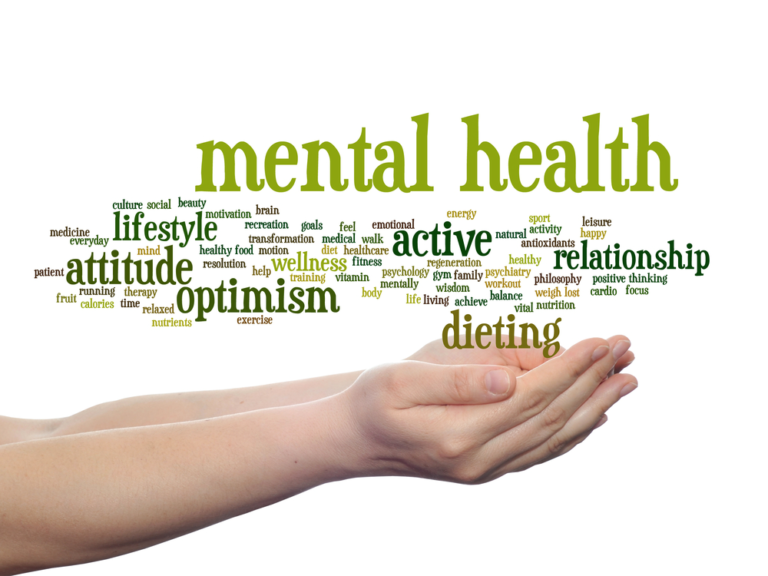Healthy Weight Loss Diet Plan
Choosing the right and healthy weight loss diet plan does not require some research on how effective the weight loss plan is in helping you attain your weight loss goal in good time but also whether the plan is one that leads to long term weight loss.
healthy weight loss diet plan should be the aim of many dieters but not many know how to know a healthy weight loss diet plan.
This article will help you determine which weight loss plan is a healthy weight loss diet plan and which is not.
The best and healthy weight loss diet plan should be those that will change you the way you think about foods, it should be one that helps you make healthy choices that will leading to losing weight.
Any one trying or thinking of losing weight should look the way of any weight loss plan that deals with reeducation, balanced diet and healthy weight loss exercise.
Any plan that deals with such factors as mentioned above would not only help you to lose weight but also help you keep it off and stay healthy, which means you can lose weight and still be making the right choices.
Maintaining a healthy weight is not just about looking good, but it is also crucial for our overall well-being.
In today’s society, the pressure to achieve an “ideal” body has led many to resort to crash diets and extreme measures to shed those extra pounds quickly.
However, these fad diets often do more harm than good, with the weight quickly piling back on once the diet is over.
The key to achieving sustainable weight loss is through a healthy and balanced diet plan.
A healthy weight loss diet plan not only helps in shedding unwanted weight but also promotes a healthier lifestyle and prevents chronic diseases such as diabetes, heart disease, and obesity-related illnesses.
In this article, we will delve into the importance of a healthy weight loss diet plan, the key components that make up a balanced diet, and tips for incorporating it into your daily routine.
With the right knowledge and approach, you can achieve your weight loss goals in a safe and sustainable manner while also nourishing your body with the necessary nutrients for optimal health.
Table of Contents Healthy Weight Loss Diet Plan
Balanced Nutrition for Sustainable Results
In order to achieve sustainable results in your weight loss journey, it is crucial to prioritize balanced nutrition.
This means nourishing your body with a variety of nutrient-dense foods that provide essential vitamins, minerals, and macronutrients.
A well-rounded diet should include a mix of lean proteins, whole grains, fruits, vegetables, and healthy fats.
It is important to avoid restrictive diets or overly focusing on eliminating specific food groups, as this can lead to nutrient deficiencies and unsustainable eating habits.
By fueling your body with a balanced nutritional approach, you can not only reach your weight loss goals but also maintain a healthy lifestyle in the long run.
Remember, achieving sustainable results is not just about losing weight, but also about nourishing your body and promoting overall well-being.
Incorporate Exercise for Maximum Benefits
Regular physical activity is a key component of any healthy weight loss plan.
Incorporating exercise into your routine not only helps burn calories and promote fat loss, but it also offers a multitude of additional benefits for your overall well-being.
Engaging in regular aerobic exercises such as walking, jogging, cycling, or swimming can elevate your heart rate, improving cardiovascular health and boosting metabolism.
Additionally, strength training exercises help build lean muscle mass, which can increase your basal metabolic rate and aid in long-term weight management.
Exercise also plays a crucial role in reducing stress, improving mood, and enhancing cognitive function.
Aim to incorporate a combination of cardio and strength training exercises into your weekly routine to maximize the benefits and support your healthy weight loss journey.
Remember to consult with a healthcare professional or a certified fitness trainer to create a personalized exercise plan that suits your fitness level and goals.
Avoid Fad Diets and Quick Fixes
When embarking on a journey towards healthy weight loss, it is vital to steer clear of fad diets and quick fixes that promise rapid results.
While these approaches may offer short-term success, they are often unsustainable and can have detrimental effects on your overall health.
Fad diets typically involve severe restrictions or elimination of certain food groups, which may lead to nutritional deficiencies and imbalances.
Additionally, they often rely on gimmicks or exaggerated claims, making it challenging to separate fact from fiction.
Instead, focus on adopting a balanced and realistic approach to nutrition, incorporating whole foods, lean proteins, fruits, vegetables, and whole grains into your meals.
This, coupled with portion control and mindful eating, will promote steady and sustainable weight loss, ensuring long-term success and improved overall well-being.
Remember, a healthy weight loss diet plan should prioritize nourishment, consistency, and a positive relationship with food.
Portion Control is Key Factor
The key factor in achieving and maintaining a healthy weight loss diet plan is practicing portion control.
It involves being mindful of the amount of food you consume, rather than solely focusing on what you eat.
Portion control helps you manage your calorie intake, which plays a crucial role in weight management.
By understanding appropriate portion sizes and listening to your body’s hunger and fullness cues, you can avoid overeating and promote a balanced approach to eating.
Incorporating tools such as using smaller plates or measuring portions can aid in maintaining portion control, ensuring you are providing your body with the right amount of nourishment without feeling deprived.
By making portion control a priority in your healthy weight loss journey, you can create sustainable habits that contribute to long-term success.
Listen to Your Body’s Needs
A fundamental aspect of a successful healthy weight loss diet plan is listening to your body’s needs.
Each person’s body is unique, and understanding its signals is essential for maintaining a balanced and sustainable approach to weight loss.
Pay attention to your hunger and fullness cues, allowing your body to guide you in determining when and how much to eat.
This means eating when you are genuinely hungry and stopping when you feel comfortably satisfied.
By listening to your body’s needs, you can develop a healthier relationship with food and make choices that nourish your body and support your weight loss goals.
Additionally, being aware of how different foods make you feel can help you identify any sensitivities or intolerances, allowing you to make informed dietary decisions.
Remember, your body is your best guide, and by tuning in to its signals, you can create a weight loss plan tailored to your individual needs and promote long-term success.
In summary, a healthy weight loss diet plan should focus on whole, nutrient-dense foods and incorporate a balance of carbohydrates, proteins, and healthy fats.
It should also include regular physical activity and allow for flexibility in food choices.
Remember, weight loss is a journey and not a quick fix, so be patient and focus on making sustainable lifestyle changes.
Consult a healthcare professional before starting any new diet plan and always listen to your body’s needs.
With dedication and consistency, you can achieve your weight loss goals and maintain a healthy lifestyle for the long term.
FAQ
What are some key components of a healthy weight loss diet plan?
A healthy weight loss diet plan should include a balanced mix of nutrient-dense foods such as fruits, vegetables, whole grains, lean proteins, and healthy fats.
It should also prioritize portion control, regular physical activity, adequate hydration, and mindful eating habits.
Avoiding processed foods, sugary drinks, and excessive amounts of unhealthy fats and sugars is essential.
Consistency, patience, and gradual changes are key to sustainable weight loss and overall well-being.
Consulting with a healthcare provider or a registered dietitian can also provide personalized guidance for creating an effective weight loss plan.
How can portion control play a role in a successful weight loss diet plan?
Portion control is crucial in a weight loss diet plan as it helps regulate calorie intake.
By managing portion sizes, individuals can prevent overeating and consume fewer calories, which is essential for creating a caloric deficit necessary for weight loss.
Controlling portions also teaches individuals to be mindful of their eating habits and make healthier food choices.
Additionally, portion control can lead to increased satiety and better digestion, contributing to overall weight management success.
Are there specific foods or food groups that should be emphasized in a weight loss diet plan?
In a weight loss diet plan, it is important to emphasize whole foods such as fruits, vegetables, lean proteins, whole grains, and healthy fats.
These foods are nutrient-dense, provide satiety, and support overall health.
It’s also beneficial to limit processed foods, sugary beverages, and high-fat foods to reduce calorie intake and promote weight loss.
Additionally, staying hydrated, controlling portion sizes, and incorporating physical activity are key components of a successful weight loss plan.
Remember, individual dietary needs vary, so consulting with a healthcare provider or nutritionist is recommended for personalized advice.
What are some common pitfalls to avoid when trying to lose weight through dieting?
Some common pitfalls to avoid when trying to lose weight through dieting include extreme calorie restriction, skipping meals, relying on fad diets, not staying hydrated, and not getting enough nutrients.
It is important to focus on sustainable lifestyle changes, incorporate a balanced diet with whole foods, practice portion control, stay active, and seek support from a healthcare professional or registered dietitian.
Remember that slow and steady progress is key to achieving long-term weight loss success.
How important is regular exercise in conjunction with a healthy weight loss diet plan?
Regular exercise is essential for a successful weight loss diet plan.
Exercise helps increase metabolism, burn calories, build muscle, improve overall health, and maintain weight loss.
It complements a healthy diet by maximizing calorie expenditure, enhancing fat loss, and promoting long-term weight management.
Additionally, exercise provides numerous other health benefits, including reducing the risk of chronic diseases, improving mood, and boosting energy levels.
Therefore, incorporating regular exercise into a weight loss program is crucial for achieving and maintaining a healthy weight.
Stay off Yo-Yo Dieting
Yo-Yo diets are not only a bad way to lose weight but also cause diverse health problems to any one on them, both physically and emotionally.
Any one on Yo-Yo diets should know that any weight lost through this method will be regained and even more in the nearest future.
You should also know that whenever you lose weight and you regained it back you are teaching your body how to fail and sending a wrong message to your brain – telling your brain to adapt to failure.
It is always advisable to adopt the best weight loss tips available so as to prepare yourself for a lifelong weight loss diet plan that is healthy and successful.
Make this lifestyle change the permanent one through sensible choices and positive tactics.
Psychological Reasons
The best weight loss tips are those which are seen to be successful.
Any dieter who is seeing the required result is most likely to continue whatever created the results in the first place.
Psychological aspect of weight loss is as important as the physical aspect of a weight loss plan.
The aim or goal or healthy eating and a change in life style over a long time should be the result of any weight loss plan that is selected and implemented by the dieter.
You can always use supplements to start but your main aim should be to make healthy choices all the time.
Implement a New and healthy Lifesytle
for a long term weight loss plan, the new regimen and a change in your eating will also lead to a change your thoughts about life in general.
You are certain to keep off the weight because you are now wiser and are now making better choices when it comes to food and exercise and some other activities which you enjoy.
If you learn how not to return to your old ways of eating, activity levels and other bad life styles you will maintain the your ideal weight levels and never get fat again.
These life styles if maintain for a very long time will will become the norm, even without thinking about the choices you are making.
The above weight loss tips are one of the many Healthy Weight Loss Diet Plans available to help those who want to lose weight and live a healthy lifestyle.
The key to healthy weight loss is getting Healthy Weight Loss Diet Plan and stick to it and also make healthy eating habit a part of your daily lifestyle.
Exercise regularly.
Learn to forgive yourself if you skip one of your daily routine but make sure you don’t quit.
And most importantly expect success.
Success will not be achieved instantly but if you persist, you would get there.
All these things will help you to take the weight off and keep it off for a lifetime.
When the new way of living and eating becomes the norm, then you will never again need to go on a diet.







